עיתונאיות ועיתונאים, הירשמו כאן להודעות לעיתונות שלנו
הירשמו לניוזלטר החודשי שלנו:
“Science for Life” – after a year fraught with challenges and tragedy, this is the title of the Weizmann Institute of Science’s 76th International Board Annual General Meeting. This title highlights both the crucial role that basic research plays in safeguarding all forms of life and the Weizmann Institute’s commitment to inspiring a lifelong passion for science. Events held in the course of the meeting culminated this evening (Monday) with the conferment of Doctor of Philosophy honoris causa degrees, the Weizmann Institute’s highest honor.
“This evening, we celebrate eight shining examples of excellence,” said Weizmann Institute President Prof. Alon Chen at the beginning of the ceremony, which took place in the Michael Sela Auditorium on the Weizmann campus in Rehovot. This year’s event was especially moving, because last year’s ceremony, which was intended to take place in November 2023, was postponed in the wake of the tragic October 7 events and the outbreak of the war. A year later, friends and supporters of the Weizmann Institute arrived here from all over the world in the midst of the war to express their deep commitment to science and to the State of Israel. “On behalf of the entire Weizmann Institute family, we salute you. Mazal tov,” Prof. Chen said, addressing this year’s honorees.
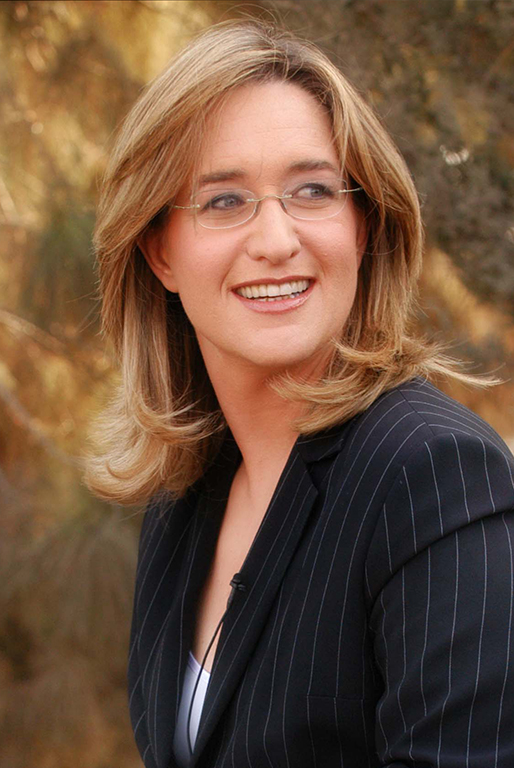
Dr. Ilana Dayan-Orbach is an Israeli TV journalist best known for anchoring the award-winning weekly investigative news program Uvda (“Fact”) since it debuted in 1993. Under her leadership, Channel 12’s Uvda – Israel’s longest-running TV program – has generated heated public discussion as well as practical action aimed at making Israel better for all. The winner of numerous prizes from the Israeli Academy of Film and Television and the Israeli Documentary Filmmakers Forum, Uvda has also earned accolades overseas, winning numerous prizes at international festivals.
Born in Argentina, Dr. Dayan-Orbach immigrated to Israel with her family at the age of six. She was raised in Tel Aviv and served in the Israel Defense Forces in the early 1980s, where she worked at Galei Tzahal (Army Radio) as a producer, editor, and the first female soldier-correspondent in the station’s history. As a correspondent, she covered Israeli politics and while still completing her military service, she became co-anchor of Galei Tzahal’s morning show. After her release from IDF service, Dr. Dayan-Orbach continued broadcasting for Galei Tzahal, where she still hosts a weekly current affairs program. At the age of 23, she became the first female anchor on the Israeli Educational Television’s five-o’clock news broadcast Erev Hadash (“New Evening”).
Alongside her career in journalism, Dr. Dayan-Orbach is a lawyer, certified by the Israel Bar Association. After completing her legal training at Tel Aviv University, she went on to earn LLM and JSD degrees from Yale Law School as a Fulbright Fellow. She currently serves as an adjunct faculty member of Tel Aviv University’s Faculty of Law, teaching a Freedom of Speech course.
In 2009, Dr. Dayan-Orbach received an award from the Movement for Quality Government in Israel, which cited her “unique contribution to the fight against the scourge of corruption, and raising the level of coverage and criticism in the written and broadcast press.” In 2015, she was awarded the Sokolov Prize, considered the most prestigious award for Israeli journalism, second only to the Israel Prize for Communications. The Sokolov Prize committee noted that Dr. Dayan-Orbach was honored for “a host of thorough, groundbreaking investigations, for her pioneering contribution to televised investigative journalism, for creating a new investigative language and for serving as a paragon for a new generation of investigative journalists.” In 2018, she was honored with a Lifetime Achievement Award by the Israeli Academy of Film and Television.
The degree is awarded to Dr. Dayan-Orbach in recognition of her monumental contributions to Israeli media and her tremendous professional achievements, which have elevated the country’s standards for investigative journalism; her noteworthy role in challenging and uncovering corruption in Israel; and her pioneering efforts to break down barriers for women in broadcasting.
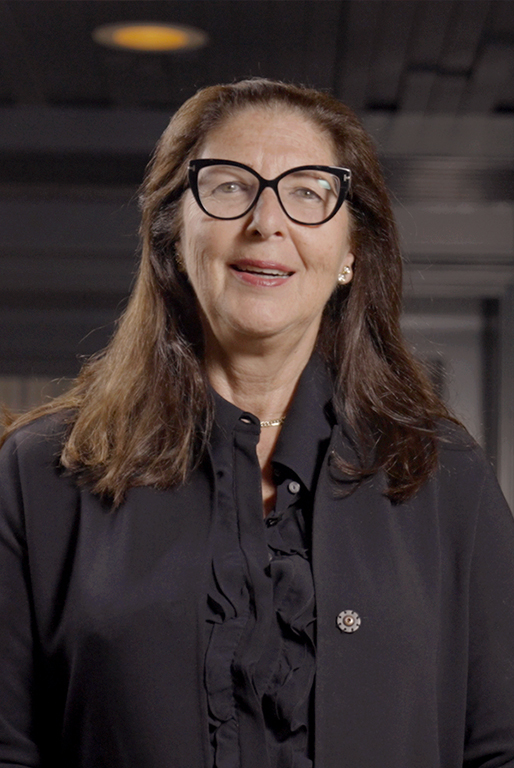
Renée Drake has been committed to education from the beginning of her career. A native of South Africa, she taught elementary school in Cape Town for several years before moving to the Netherlands where she was instrumental in developing a curriculum for English as a second language in Dutch elementary schools.
Mrs. Drake is passionate about contemporary art, a passion that has grown over the years. Her background in education plays a significant role in her and her husband’s approach to showcasing and supporting artists from around the world.
Mrs. Drake has been driven to seek creative minds and support their journeys toward achieving artistic and scientific excellence. An active curator of the Drake family collection of contemporary art, she established a unique residency program near her home in the Netherlands that provides selected artists with the living space and studio facilities they need to fully devote themselves to their work. She regularly loans works displayed in the Drake collection to top museums and institutions across the globe, currently focusing on traveling exhibitions to university galleries in the US.
As a former teacher and an ardent advocate of the integration of the arts into education, Mrs. Drake is also passionate about science, particularly the Weizmann Institute of Science. She was introduced to Weizmann through her husband Bob Drake, a third-generation Institute supporter who is currently the Chair of the International Board, chairs the European Committee (ECWIS) and was himself awarded a PhD honoris causa by the Institute in 2008.
Mrs. Drake’s strong connection with the Weizmann Institute has been punctuated by a series of deep and lasting friendships with the scientists she has come to know. In 1997, the family established the Henry H. Drake Professorial Chair of Immunology in memory of Bob’s late father. Now held by Prof. Steffen Jung, the first incumbent was Prof. Yair Reisner, a world authority on bone marrow transplantation immunology who, as a young Weizmann-trained scientist, had been part of the team assisting in Henry’s care at Memorial Sloan Kettering Cancer Center in Manhattan during his terminal illness. Later, the couple endowed the Drake Family Professorial Chair in Nanotechnology, whose first incumbent was Prof. Reshef Tenne, and which is now held by Prof. Ernesto Joselevich. Both Prof. Reisner and Prof. Tenne have become close personal friends of the Drake family.
The Drakes have also generously gifted the Weizmann Institute with the resources to establish the EKARD Research School of Biological Science at the Feinberg Graduate School and the EKARD Institute for Cancer Diagnosis Research at the Moross Integrated Cancer Center, the name recognition of both being a reversal of the name Drake. The auditorium that the couple built at the Davidson Institute of Science Education is called “Habarvaz” (“The Duck”) – a reference to the name Drake, which also means a male duck –raising a smile among all who know them, as well as admiration for the Drakes’ ability to have a major philanthropic impact, without taking themselves too seriously.
Today, Mrs. Drake continues to contribute to the Weizmann Institute through “friend-raising” – employing her charm and creative spirit to attract additional supporters into the Weizmann global family and, just as she does in her art, make the world a more beautiful and fascinating place.
The degree is awarded to Mrs. Drake in recognition of her passion for promoting the arts through her patronage of young artists and her successful efforts to bring priceless works to galleries and museums worldwide; her generous support of the Weizmann Institute of Science, which spans numerous areas of research as well as science education; and her selfless work to expand and strengthen the Institute’s circle of friends across Europe and around the world.
A self-made real estate entrepreneur, Elie Horn is a visionary philanthropist, whose unwavering commitment to charitable causes in Brazil, Israel and around the world has earned global admiration and respect.
Mr. Horn was born in 1944 in Aleppo, Syria to a Jewish family. Emigrating to Brazil at the age of 11, he quickly immersed himself in the real estate industry alongside his brother in São Paulo, starting a real estate investment business when he was 19. He studied at the Universidade Presbiteriana Mackenzie, earning a bachelor’s degree in law.
In 1962, Mr. Horn founded Cyrela Brazil Realty, building it into the largest publicly traded developer of high-end residential projects in Brazil. Operating in various states and cities across Brazil and Argentina, the company has catered to over 100,000 clients and has over 5,000 employees. Mr. Horn is the company’s principal shareholder and has held various leadership roles, including CEO (1978-2014) and Chairman of the Board of Directors (since 2014). He also chairs the Board of Directors of Cyrela Commercial Properties and is currently a member of the Board of Directors of Lavvi Empreendimentos Imobiliários S.A.
A staunch champion of social justice, Mr. Horn founded and supports many charitable organizations. His philanthropy focuses on supporting the Jewish world, promoting education and fostering social development. He founded the Instituto Liberta, which works to combat sexual exploitation of children and adolescents in Brazil in all its forms, and the Movimento Bem Maior, an organization focused on strengthening Brazil’s philanthropy ecosystem. In 2015, Mr. Horn and his wife Susy became the first Brazilians to sign The Giving Pledge, committing to donate 60% of their wealth to charitable causes.
Mr. Horn gives extensively to various causes in Israel, including a significant donation to the University of Haifa and support for programs such as the Kemach Foundation and initiatives at the Hebrew University of Jerusalem, which promote employment among the ultra-Orthodox community. He also supports a university project for the ultra-Orthodox community in Gan Yavne, a town in central Israel. At Weizmann, Mr. Horn has pledged a transformative gift to advance cutting-edge brain and neuroscience research, through the Brazilian Friends Building that will house the Azrieli Institute for Brain and Neural Sciences. His philanthropic efforts also include promoting the fusion between Judaism and science.
Mr. Horn has recently authored and published a book in which he outlines his philanthropic vision and reflects on milestones in his personal and professional life.
The degree is awarded to Mr. Horn in recognition of his lifelong mission to strengthen the Jewish people through countless programs dedicated to Jewish identity and education; his immense and inspiring philanthropic endeavors spanning a wide array of causes in Israel, Brazil and around the world; and his visionary leadership in advancing cutting-edge brain and neuroscience research at the Weizmann Institute of Science.
A prominent entrepreneur and philanthropist, Roberto Kaminitz was born in Montevideo, Uruguay, in 1935. He attended a preparatory school and college in the United States before moving to São Paulo, Brazil, where he embarked on his professional journey.
In addition to a noteworthy career at the helm of successful companies in the electronics, real estate and finance industries, he has held leadership roles in prominent organizations such as the Brazilian Electrical and Electronics Industry Association and the Latin American Association of Manufacturers of Electrical and Electronic Industries.
In 2012, he became a Vice President of the Sociedade Beneficente Israelita Brasileira Albert Einstein, also serving on the Advisory Board and Board of Directors of the Hospital Israelita Albert Einstein and as President of the Rotary Club of Brooklin, São Paulo. His achievements have been recognized with the State Government of São Paulo’s Medal of the Order of Ipiranga (1982).
The Kaminitz family has deep-rooted ties to the Weizmann Institute: Mr. Kaminitz’s parents, Armando and Eva, were early donors to the Institute, and he and his brother Pablo have remained steadfast Weizmann supporters. Mr. Kaminitz’s own involvement began in 1988 when he hosted a delegation of Institute leaders and established the Brazilian Friends of the Weizmann Institute of Science, which he headed for over a decade.
In the decades since, Mr. Kaminitz and his wife Barbara have remained close friends of the Weizmann Institute, playing an active role in the prosperity of the Brazilian Friends. Their support encompasses several major initiatives, including the Weizmann-Brazil Tumor Bank within the Moross Integrated Cancer Center.
Mr. Kaminitz’s dedication to fostering young talent through programs like the Bessie F. Lawrence International Summer Science Institute has created a lasting impact on Brazilian science and society, with participants who return from the Weizmann Institute to their native Brazil, going on to become informal ambassadors for Israel and the Institute.
Mr. Kaminitz is a Life Member of the International Board of the Weizmann Institute and a member of the President’s Circle.
The degree is awarded to Mr. Kaminitz in recognition of his impactful contributions to industry and society as a prominent entrepreneur and influential community leader, who has channeled his resources and influence into a wide array of causes in Brazil and in Israel; his wisdom, expertise and integrity, which are emblematic of both his professional and philanthropic pursuits; and his exemplary commitment to advancing basic research and science education at the Weizmann Institute of Science.
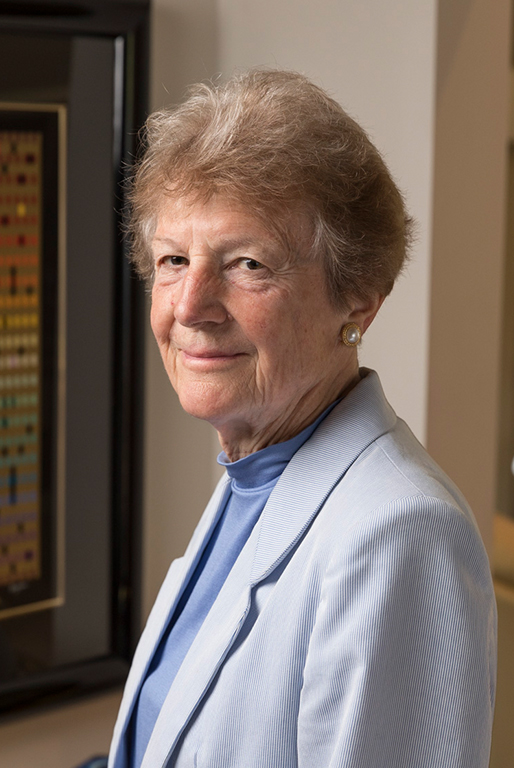
Martha A. Darling is a retired corporate executive and a prominent leader in diverse nonprofit organizations, whose contributions have significantly shaped the fields of public policy, business and conservation in the United States.
A graduate of Reed College and Princeton’s Woodrow Wilson School of Public and International Affairs, she served as a freelance policy consultant to the Organization for Economic Cooperation and Development in Paris, analyzing the roles of women in member economies. In 1977, she was appointed a White House Fellow under President Jimmy Carter, serving at the US Treasury with Michael Blumenthal. Subsequently, she became a senior legislative aide to Senator Bill Bradley of New Jersey.
Ms. Darling’s career featured leadership roles as vice president for strategic planning at Seattle-First National Bank, executive director of the Washington Business Roundtable’s Education Study and senior program manager at the Boeing Company. She has consulted on education policy for the National Academy of Sciences and chaired the boards of the Institute for Women’s Policy Research and the Ann Arbor Area Community Foundation.
Her extensive board memberships include the White House Commission on Presidential Scholars, the Salzburg Global Seminar, the Maverick Collective, Reed College, the Sphinx Organization and the University of Michigan’s Gerald R. Ford School of Public Policy. In addition, she is the founding co-chair of Washtenaw County’s “Success by Six” early childhood initiative.
Ms. Darling also emerged as an influential conservationist, serving as a member of the President’s Leadership Council of the National Wildlife Federation (NWF) and playing a pivotal role in reviving the NWF Action Fund, which supports wildlife conservation efforts nationwide. Her efforts in this area were recognized through the NWF’s 2016 National Conservation Achievement Award.
Together with her husband, Dr. Gil Omenn, Ms. Darling is a member of the Weizmann Institute’s President’s Circle. Their support for Institute initiatives includes the creation of an endowed fund for the Davidson Institute of Science Education’s annual Ephraim Katzir Lecture, the establishment of the Leah Omenn Career Development Chair and the Dr. Gil Omenn and Martha Darling Professorial Chair in Molecular Genetics, and, most recently, the Dr. Gilbert S. Omenn and Martha A. Darling Weizmann Institute-Schneider Hospital Fund for Clinical Breakthroughs through Scientific Collaborations, to foster collaboration between scientists and clinicians to advance pediatric medicine.
The degree is awarded to Ms. Darling in recognition of her distinguished professional achievements and leadership across nonprofit, business and conservation endeavors; her unwavering commitment to advancing education, gender equality, sustainability and science through extensive philanthropic efforts; and her powerful championship of the Weizmann Institute of Science, where her dedication and generosity have fostered groundbreaking research and impactful collaborations.
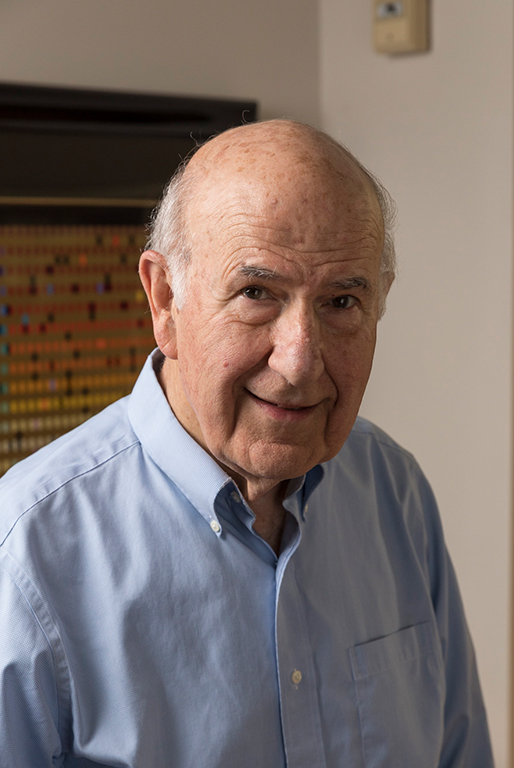
Dr. Gilbert (Gil) Omenn is the Harold T. Shapiro Distinguished University Professor of Computational Medicine & Bioinformatics, Internal Medicine, Human Genetics and Environmental Health at the University of Michigan, Ann Arbor. A physician-scientist, his career encompasses biomedical research, public health and public policy, government service and academic medical center leadership.
He holds an MD from Harvard Medical School, where he described a kindred affected by severe T and B cell dysfunction, now known as Omenn syndrome. After working with Nobel Prize laureate Christian B. Anfinsen on protein chemistry at the National Institutes of Health (NIH), he earned a PhD in genetics from the University of Washington and joined its faculty. He served as a White House Fellow at the US Atomic Energy Commission, became a Howard Hughes Investigator, served in the Carter White House as associate director in the Office of Science and Technology Policy and the Office of Management and Budget, then was Dean of Public Health for 15 years before moving to the University of Michigan in 1997 as Executive Vice-President for Medical Affairs and CEO of the UM Health System.
Dr. Omenn has held numerous science leadership posts, including President of the American Association for the Advancement of Science, leader of the global Human Proteome Project, Research!America Paul G. Rogers Society for Global Health Ambassador, and board member for the Hastings Center for Bioethics, the Center for Naval Affairs, the Center for Public Integrity, the Foundation for the NIH and the American Friends of the Israel-US Binational Science Foundation. His accolades include election to the National Academy of Medicine (1979) and American Academy of Arts & Sciences (2001), White House Fellows Association John W. Gardner Legacy of Leadership Award (2004), National Academy of Medicine Walsh McDermott Medal (2008) and Association of American Medical Colleges David E. Rogers Award (2013).
A transformative summer at the Weizmann Institute in 1962, working in Prof. Ephraim Katzir’s laboratory, marked the beginning of Dr. Omenn’s warm, steadfast relationship with the Institute and with Prof. Katzir. He serves on the Board of the American Committee for the Weizmann Institute of Science and as a Life Member of the Institute’s International Board. With his wife, Martha Darling, he is a member of the Weizmann Institute’s President’s Circle. The couple have endowed the Katzir Lecture, the Leah Omenn Career Development Chair – currently held by Dr. Sivan Refaely-Abramson of the Molecular Chemistry and Materials Science Department – in honor of Dr. Omenn’s mother, as well as the Dr. Gil Omenn and Martha Darling Professorial Chair in Molecular Genetics, held by Prof. Maya Schuldiner. Their latest contribution is the Dr. Gilbert S. Omenn and Martha A. Darling Weizmann Institute-Schneider Hospital Fund for Clinical Breakthroughs through Scientific Collaborations.
The degree is awarded to Dr. Omenn in recognition of his seminal contributions to computational medicine and bioinformatics, which have transformed proteomics research; his pivotal role in shaping and modernizing science policy and practice in the United States; and his enduring friendship and unwavering support of the Weizmann Institute of Science, enriching its scientific mission and achievements for many years to come.
Celebrated as a prolific songwriter, composer, gifted guitarist and charismatic bandleader, Danny Sanderson is one of Israel’s most cherished performing artists. His seemingly simple compositions, rich with intricate harmonies, alongside sophisticated yet unpretentious pieces for theater and film, have defined the soundtrack of modern Israeli culture for five decades.
Born in 1950 in Kibbutz Kfar Blum and raised in Haifa, Mr. Sanderson moved to New York City with his family at the age of ten. There, he attended the High School of Music and Art, immersing himself in the vibrant American pop-rock scene of the 1960s, which heavily influenced his musical style, before returning to Israel and joining the IDF’s Nachal Troupe as a guitarist.
In the early 1970s, Mr. Sanderson founded the seven-member Kaveret, one of Israel’s most successful rock bands, widely considered a breakthrough act in local rock and pop history. As the main songwriter, he infused the band’s music with humorous themes, wordplay and a blend of fast tempos, while still touching on issues such as loneliness and alienation. Kaveret distilled the essence of Israeli identity into fresh, relevant and authentic sounds that were both contemporary and distinctly Israeli. The band’s success broadened the scope of Israeli music, paving the way for new musicians to join the scene.
Post-Kaveret, Mr. Sanderson founded two more bands, Gazoz and Doda, each with a distinct musical style. His solo career flourished with ten albums, the latest released in 2022, showcasing a signature style that evolved from witty and nonsensical in the 1970s and 80s to deeper, more philosophical and somewhat bittersweet texts, enveloped by catchy tunes and sophisticated arrangements.
Through his music, Mr. Sanderson illuminates the absurdity of everyday life, offering a comical and reflective look at the awkwardness of the Israeli experience, as well as compassion for life’s “losers.” His tendency toward the absurd was also conveyed in the book of prose he authored, Public Snoring.
His expansive musical collaborations and unique blend of humor, empathy and musicality have endeared him to audiences nationwide. Recognized with the 2006 Society of Authors, Composers and Music Publishers Lifetime Achievement Award and the 2021 Union of Israeli Artists Lifetime Achievement Award, Mr. Sanderson remains a pillar of Israeli music, revered for his guitar prowess, vocals and enduring contributions to Israeli culture.
The degree is awarded to Mr. Sanderson in recognition of his exceptional talent as a songwriter, composer, guitarist, musical producer and performer; his remarkable ability to infuse humor, empathy and musicality into masterpieces that have defined the sound of modern Israeli music; and his lifelong contribution to the country’s cultural landscape, inspiring generations of musicians and leaving an indelible mark on the evolution of Israeli rock.
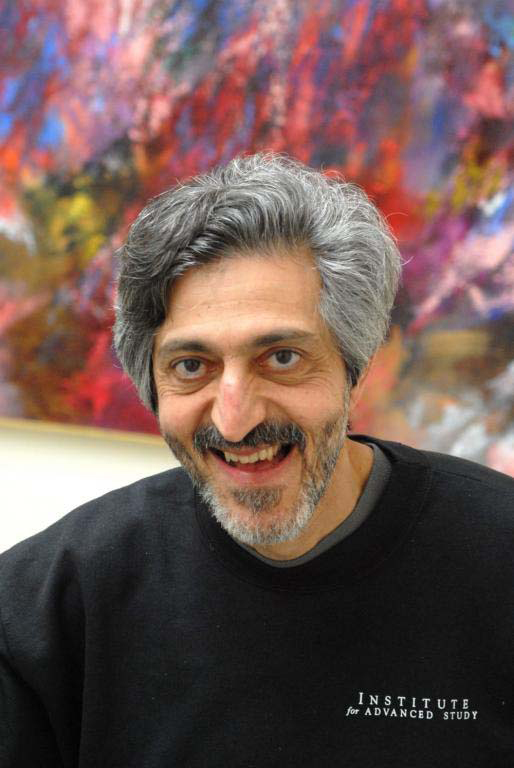
For four decades, Prof. Avi Wigderson has been a trailblazer in theoretical computer science, renowned for his profound impact on the intersection of mathematics and computer science. His seminal insights into randomness and pseudorandomness in computation have been recognized with the 2023 ACM A.M. Turing Award, often likened to the Nobel Prize of computing.
Born in Haifa in 1956, Prof. Wigderson earned an undergraduate degree from the Technion – Israel Institute of Technology and pursued a dual master’s degree in electrical engineering and computer science, followed by a PhD in computer science from Princeton University. In 1986, he joined the Hebrew University of Jerusalem, later moving to the Institute for Advanced Study’s School of Mathematics in Princeton, where he is the Herbert H. Maass Professor.
Working with colleagues, Prof. Wigderson demonstrated that randomness is not essential for efficient computation, as many problems traditionally solved using random processes can be made fully deterministic. This groundbreaking work transformed our understanding of the role of randomness in computation and reshaped the field. With other collaborators, he developed the first efficient combinatorial methods for constructing expander graphs, which have significant applications in both mathematics and theoretical computer science and enhance our ability to solve complex problems. He has also led advancements in other key areas of theoretical computer science, such as multi-prover interactive proofs, cryptography and circuit complexity.
He is a member of the editorial boards of influential scientific journals and the author of numerous publications, and has mentored multiple generations of young scientists. Many of Prof. Wigderson’s former students went on to become prominent in their fields, including at the Weizmann Institute, where he is an esteemed and cherished colleague and research collaborator. He has co-authored dozens of papers with Weizmann scientists and is a frequent visitor to the Weizmann campus in Rehovot.
Prof. Wigderson is the only person to have received both the highest honor for computer science – the Turing Award (2023), and the most important honor for lifetime achievements in the field of mathematics – the Norwegian Academy of Science and Letters’ Abel Prize (2021). Other accolades include the Rolf Nevanlinna Prize (1994); the Gödel Prize (2009); and the Donald E. Knuth Prize (2019). Prof. Wigderson has also been awarded an honorary doctorate from the Technion, his alma mater.
The degree is awarded to Prof. Wigderson in recognition of his pioneering contributions to mathematics and computer science, which have opened new horizons in both fields, and at the interface between them; his intellectual leadership in a wide range of scientific investigations for four decades, making him a true beacon of scholarly excellence; and his role as a mentor to generations of young researchers, including at the Weizmann Institute of Science.